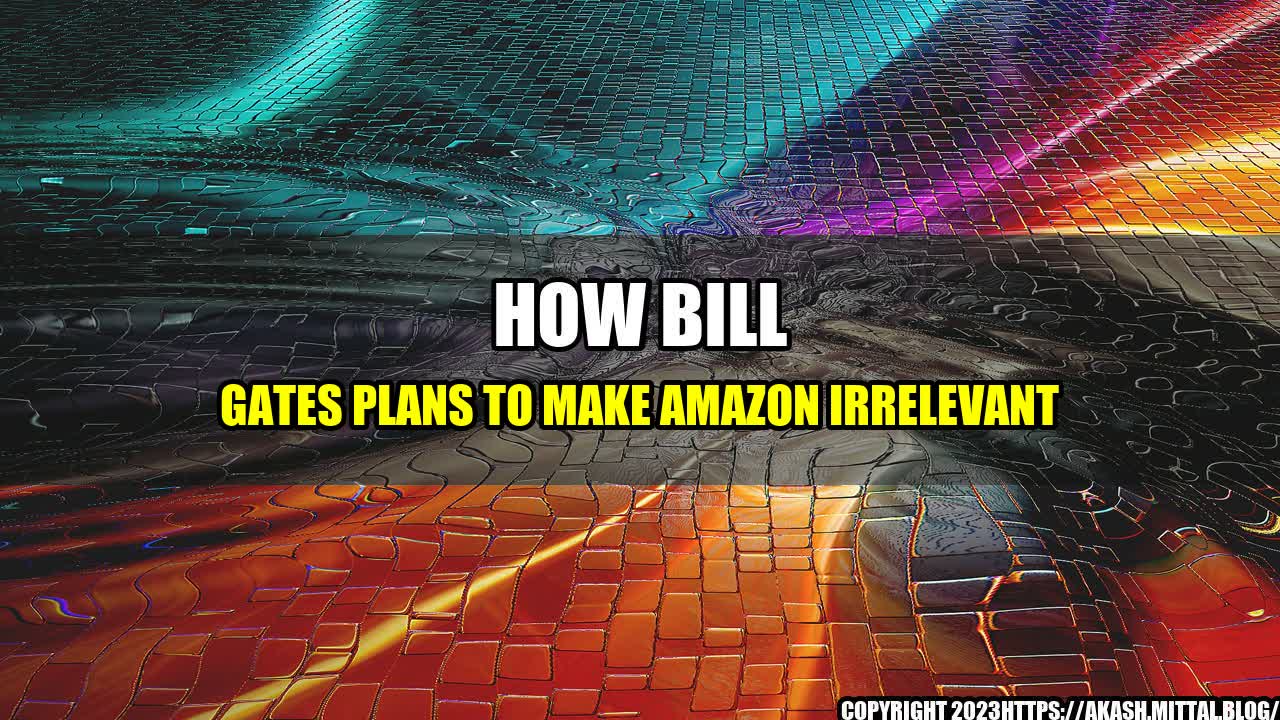
Bill Gates is no stranger to tech innovation and disruption. As the founder of Microsoft, he helped revolutionize the computer industry in the 80s and 90s. But now, as he enters the later stages of his illustrious career, Gates has a new target in his sights: Amazon.
The story of Bill Gates taking on Amazon is like a classic David vs. Goliath story. Amazon is currently one of the most valuable companies in the world, worth over $1 trillion. They dominate the e-commerce space, with over 100 million Prime members and a market share of almost 50% in the US. Their cloud computing platform, AWS, is also a major player in the tech industry, with a market share of over 30%. They seem almost unbeatable.
But Gates is undeterred. He sees their dominance as an opportunity, not a threat. He knows that every Goliath has a weakness, and he plans to exploit it.
Gates' plan is centered around the concept of "platforms". He believes that in order to take on Amazon, Microsoft needs to build better platforms for businesses to operate on. The first step in this plan is to dominate the cloud computing space, where AWS is currently king.
Microsoft's Azure cloud platform may not be as well-known or as widely used as AWS, but it's growing fast. In fact, Azure's revenue growth rate is higher than AWS', according to recent data from Synergy Research Group. Plus, Microsoft has some big-name clients, like Walmart and Coca-Cola, who have chosen Azure over AWS. Gates believes that if Microsoft continues to invest in Azure, it can surpass AWS in the future.
But it's not just about cloud computing. Gates also wants to build better platforms for businesses to operate on, including operating systems and productivity tools. Microsoft has already made moves in this direction, with the launch of Windows 11 and the acquisition of GitHub, a platform for developers to collaborate on coding projects.

"How Bill Gates Plans to Make Amazon Irrelevant" is more than just a catchy headline. It speaks to the heart of Gates' strategy: he doesn't just want to compete with Amazon, he wants to render them irrelevant. It's a bold claim, but one that Gates is confident he can deliver on.
As someone who has been at the forefront of technology innovation for decades, Gates has plenty of personal anecdotes and case studies to draw from. One example he often cites is the rise of the smartphone. When Apple launched the iPhone in 2007, it was a revolutionary device that changed the way people interacted with technology. But Gates saw an opportunity to improve on it. He believed that smartphones could be even more powerful if they were integrated with other devices, like computers and tablets. And thus, the concept of the "smart home" was born.
Gates' vision for the smart home may not have come to fruition yet, but the idea of interconnected devices is now commonplace. And it's this kind of big-picture thinking that Gates brings to his battle with Amazon.
In conclusion, Bill Gates' plan to take on Amazon is a multi-faceted one, but it can be summed up in three key points:
This article falls under the category of Technology. For more information on Bill Gates and his plan for Microsoft, visit the following sites:
Hashtags to use when sharing this article on social media:
#BillGates #Amazon #Microsoft #CloudComputing #SmartHome #Technology #Innovation
Curated by Team Akash.Mittal.Blog
Share on Twitter Share on LinkedIn